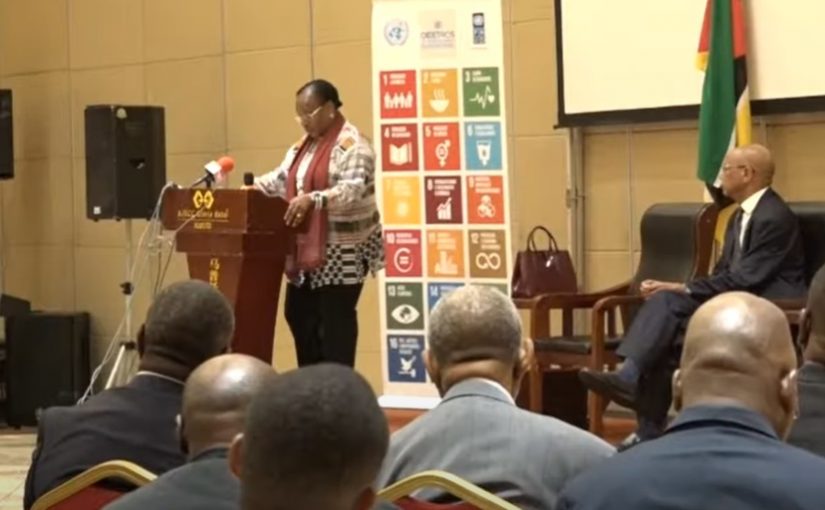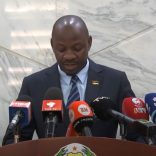Mozambique: Prosecution turns Mondlane's own words against him - AIM
Mozambique Elections: Dispersion of legislation ‘pernicious’ – CC president

Screen grab: MBC
The president of the Constitutional Council (CC) of Mozambique on Wednesday described the dispersion of electoral laws in the country as “pernicious”, and urged the approval of an electoral code that provides normative “unity and coherence”.
Lúcia Ribeiro was speaking during the presentation of the book “Mozambican Political Electoral Law”, by Manuel Frank, a judge advisor to the CC appointed to the position by the Mozambican National Resistance (Renamo), the main opposition party.
“The dispersion of electoral legislation is pernicious (…) It is time to move towards an electoral code,” Ribeiro, who was appointed by the Front for the Liberation of Mozambique (Frelimo, the ruling party) declared.
The constant changes to the electoral legal framework and its excessively isolated nature undermine the unity and coherence of the legal framework, Ribeiro continued.
“It is our opinion that parliament, perhaps by creating a commission with two or three years to study the matter, should move towards an electoral code,” she remarked.
Ribeiro said that the Assembly of the Republic of Mozambique gave the impression that it has no interest in condensing electoral legislation into a single text, noting that the constant changes to the rules aim to “incorporate the concerns of political parties, civil society and national and foreign electoral observers”, at the end of each election.
Ribeiro also warned of the lack of knowledge of electoral legislation caused by changes in the middle of the electoral process, arguing that new rules cannot be applied to a vote already underway.
She pointed to the example of electoral legal systems in other countries, which apply new laws one year after their approval, in compliance with the “principle of prior notice”.
The president of the CC also stressed the need for the courts not to “soften” the application of electoral legislation, because these bodies only have to enforce compliance with rules approved by the ordinary legislator, in this case, parliament.
“The judges’ only responsibility is to apply the law, without questioning the choices made by the legislator,” Ribeiro added.
Ribeiro stressed that the courts should not be accused of “legalism” in the execution of electoral law, because electoral law is essential for “the acquisition and transmission of political power”.
Ribeiro acknowledged the progress of Mozambican political parties in the area of electoral legislation, noting that 80% of petitions presented in the local elections of 11 October had a legal basis.
The latest revision to the electoral law was approved by the Mozambican parliament on August 8th and, among several aspects of the specific changes, the highlight was the removal of the powers of the district courts to order a recount of votes, which generated criticism from various segments of society, including the Mozambican Association of Judges (AMJ).
The Mozambican parliament had already changed the electoral law, expressly determining that the district courts do not have the power to order a repeat vote in the elections in Mozambique, after the Constitutional Council invalidated decisions of that court that ordered new votes in some polling stations in the local elections of October 11th, especially in the city of Maputo, where the opposition did not recognize the results.
Mozambique will hold presidential elections on October 9, simultaneously with legislative and gubernatorial elections.












Leave a Reply
Be the First to Comment!
You must be logged in to post a comment.
You must be logged in to post a comment.